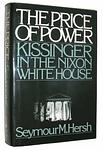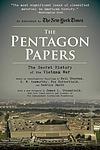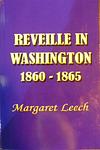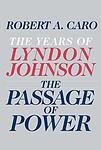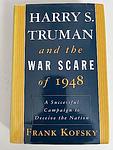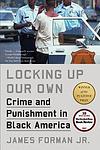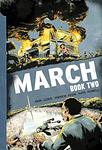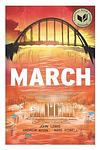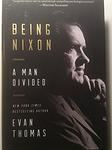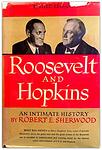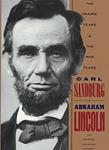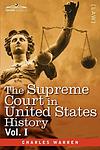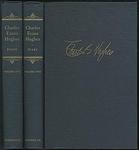The Greatest "American History, Washington, D.C." Books of All Time
Click to learn how this list is calculated.
This list represents a comprehensive and trusted collection of the greatest books. Developed through a specialized algorithm, it brings together 300 'best of' book lists to form a definitive guide to the world's most acclaimed books. For those interested in how these books are chosen, additional details can be found on the rankings page.
Genres
The "American History" category encompasses a broad range of books that delve into the events, figures, and forces that have shaped the United States from its pre-colonial days to the present. This genre includes works on pivotal moments such as the American Revolution, Civil War, and civil rights movements, as well as studies of political, social, and cultural developments across various eras. It covers biographies of influential leaders, analyses of policy changes, and examinations of societal shifts. Whether providing comprehensive overviews or focusing on specific incidents or decades, books in the American History category aim to illuminate the complexities of the nation's past, offering readers insights into the events that have defined the American experience and the context for its ongoing evolution.
The "Washington, D.C." category for books encompasses a diverse array of literature that is either set in, influenced by, or pertains to the capital city of the United States. This genre includes political thrillers that delve into the machinations of American governance, historical accounts detailing the city's evolution, and biographies of influential figures whose lives and careers were shaped by their time in the nation's capital. It also features non-fiction works exploring the city's unique cultural, social, and urban dynamics, as well as guidebooks for visitors. From the corridors of power on Capitol Hill to the vibrant streets of its various neighborhoods, books in the "Washington, D.C." category offer readers a window into the heart of American politics, policy, and history.
Countries
Date Range
Reading Statistics
Click the button below to see how many of these books you've read!
Download
If you're interested in downloading this list as a CSV file for use in a spreadsheet application, you can easily do so by clicking the button below. Please note that to ensure a manageable file size and faster download, the CSV will include details for only the first 500 books.
Download-
1. All the President's Men by Bob Woodward, Carl Bernstein
"All the President's Men" is a non-fiction book that details the investigative journalism conducted by two reporters who uncover the details of the Watergate scandal that led to President Nixon's resignation. The book provides a detailed account of the reporters' struggles to uncover the truth, the obstacles they faced, their persistence, and the ultimate revelation of a political scandal that shook the United States.
-
2. Team of Rivals: The Political Genius of Abraham Lincoln by Doris Kearns Goodwin
This book explores the political acumen of Abraham Lincoln, focusing on how he assembled his cabinet from political adversaries, many of whom initially dismissed him for his perceived lack of experience and ungainly appearance. The narrative delves into how Lincoln used his rivals' talents to navigate the tumultuous times of the Civil War, maintaining unity and leading the nation towards the abolition of slavery. It underscores Lincoln's extraordinary ability to turn rivals into allies, demonstrating his leadership and his profound impact on American history.
-
3. The Price of Power by Seymour M. Hersh
"The Price of Power" offers a critical examination of the presidency of Richard Nixon with a particular focus on the Vietnam War. The book delves into the secretive and often manipulative tactics employed by Nixon and his administration, including the undermining of peace talks to secure his own political victory. It presents a detailed and disturbing account of political maneuvering, deception and abuse of power at the highest level of American politics.
-
4. The Age of Jackson by Arthur M. Schlesinger, Jr
This book provides an in-depth historical analysis of the political and social changes during the era of Andrew Jackson's presidency in the United States. It explores the significant events, policies, and ideologies of the time, including the rise of the Democratic Party, the influence of the "common man" in politics, and the controversial Indian Removal Act. The book also delves into the economic shifts of the period, such as the battle over the Second Bank of the United States, providing a comprehensive overview of this transformative era in American history.
-
5. The Pentagon Papers by New York Times
The book in question is a compilation of classified documents that were leaked to the press, revealing the inner workings and decision-making processes of the U.S. government regarding the Vietnam War. It exposes a series of governmental lies and cover-ups, showing that successive administrations had misled the public about the scale and purpose of American involvement in Vietnam. The release of these papers had significant implications for the relationship between the government and the media, sparking a fierce debate over the balance between national security and the right to know, and ultimately contributing to a shift in public opinion against the war.
-
6. Thirty Years As A Slave And Four Years In The White House by Elizabeth Keckley
This memoir offers a poignant and powerful account of an African American woman's life journey from the harsh realities of enslavement to her emancipation and subsequent role as a successful dressmaker and confidante to the First Lady of the United States during the Civil War era. The narrative provides a unique insider's perspective on daily life in the White House, as well as intimate observations of presidential family dynamics during one of the nation's most tumultuous periods. Her story is one of resilience and determination, highlighting the struggles and achievements of a woman who navigated the complex intersections of race, gender, and politics in 19th-century America.
-
7. The 9/11 Commission Report by 9/11 Commission
This book is a comprehensive, detailed account of the events leading up to the September 11, 2001 terrorist attacks on the United States, the attacks themselves, and the immediate aftermath. It was compiled by a bipartisan commission and offers an in-depth analysis of the systemic failures that allowed these attacks to occur. The report also provides recommendations for preventing future terrorist attacks, emphasizing the need for improved intelligence and security measures.
-
8. Reveille in Washington by Margaret Leech
"Reveille in Washington" is a vivid portrayal of Washington D.C. during the American Civil War. The book offers a detailed account of the city's transformation from a sleepy Southern town to a bustling hub of war activity, filled with soldiers, spies, bureaucrats, and freed slaves. The narrative also explores the social, political, and military life of the city during this tumultuous period, providing a unique perspective on the war and its impact on the nation's capital.
-
9. Fear and Loathing on the Campaign Trail '72 by Hunter S. Thompson
This book is a visceral, first-person account of the 1972 presidential campaign, as seen through the eyes of a maverick journalist. It blends political analysis, cultural commentary, and personal anecdotes to capture the chaotic spirit of the election that pitted incumbent President Richard Nixon against Democratic challenger George McGovern. The narrative is infused with the author's signature gonzo style, characterized by a highly subjective and often satirical approach to journalism. Through a series of articles originally written for a major magazine, the book delves into the machinations of political operatives, the mood of the American electorate, and the dark underbelly of the campaign trail, all while grappling with the broader implications of the American political system.
-
10. The Bully Pulpit: Theodore Roosevelt, William Howard Taft, And The Golden Age Of Journalism by Doris Kearns Goodwin
This historical work delves into the vibrant era of early 20th-century America, exploring the close friendship and eventual political rivalry between two presidents, Theodore Roosevelt and William Howard Taft. It also highlights the crucial role of muckraking journalists who, with the support of Roosevelt's bully pulpit, exposed corruption and galvanized public opinion. The narrative weaves together the personal and political dynamics that shaped the Progressive Era, showcasing how these leaders and the press collectively brought about significant reforms and forever transformed the American political landscape.
-
11. The Passage Of Power: The Years Of Lyndon Johnson by Robert Caro
"The Passage of Power: The Years of Lyndon Johnson" by Robert Caro is the fourth volume in his acclaimed biography of the 36th President of the United States. This book covers the years from 1958 to 1964, including Johnson's ascent to the presidency following the assassination of John F. Kennedy. Caro explores Johnson's struggles to pass civil rights legislation, his relationship with Kennedy's family, and his efforts to establish his own presidential legacy. The book also delves into Johnson's personal life, including his marriage to Lady Bird Johnson and his health issues. Overall, "The Passage of Power" provides a comprehensive and insightful look into one of the most complex and consequential figures in American political history.
-
12. Harry Truman And The War Scare Of 1948 by Frank Kofsky
The book delves into the political and military maneuvers of 1948, focusing on President Harry Truman and his administration's response to perceived threats from the Soviet Union. It argues that Truman exaggerated the Soviet threat to justify a massive military buildup, thereby securing public and Congressional support for increased defense spending and the implementation of a global containment strategy against communism. The author critically examines primary sources and declassified documents to challenge the traditional Cold War narrative, suggesting that domestic economic and political factors played a significant role in shaping U.S. foreign policy during this pivotal period.
-
13. The Nine: Inside The Secret World Of The Supreme by Jeffrey Toobin
"The Nine" by Jeffrey Toobin provides an in-depth look at the inner workings of the Supreme Court, focusing on the years between 2005 and 2007. Toobin explores the personalities, ideologies, and decisions of the nine justices who serve on America's highest court, including the contentious nominations of John Roberts and Samuel Alito. He also delves into landmark cases such as Bush v. Gore and the legalization of same-sex marriage. Through interviews with justices and their clerks, as well as extensive research, Toobin offers a fascinating glimpse into the secretive world of the Supreme Court.
-
14. Days Of Fire: Bush And Cheney In The White House by Peter Baker
"Days of Fire" is a comprehensive account of the presidency of George W. Bush and his vice president, Dick Cheney, during their eight years in the White House. Peter Baker, a journalist who covered the Bush administration for The New York Times, provides a detailed analysis of the key events and decisions that shaped their time in office, including the 9/11 attacks, the wars in Iraq and Afghanistan, Hurricane Katrina, and the financial crisis. Through interviews with key players and extensive research, Baker offers a nuanced portrait of two men who were both praised and vilified for their leadership and legacy.
-
15. Locking Up Our Own: Crime and Punishment in Black America by James Forman
This book delves into the complex and controversial issue of mass incarceration in the United States, particularly within the African American community. It explores the historical, social, and political factors that contributed to the high rates of black imprisonment. The author examines the role of African American leaders in advocating for tough-on-crime policies and their unintended consequences. The book is a thought-provoking analysis of the intersection of race, crime, and justice in America.
-
16. March: Book Two by John Lewis
This graphic novel continues the memoir of a prominent civil rights leader, chronicling his commitment to nonviolent protest in the fight for racial equality in the United States. It delves into his personal experiences during the early 1960s, including his participation in the Freedom Rides, the historic 1963 March on Washington, and his leadership in the Student Nonviolent Coordinating Committee. The narrative captures the intensity of the movement, the confrontations with segregationist forces, and the internal struggles within the civil rights organizations, all set against the backdrop of the growing civil rights movement and the push for legislation that would eventually lead to the Voting Rights Act of 1965.
-
17. March: Book Three by John Lewis, Andrew Aydin
"March: Book Three" concludes a powerful graphic novel trilogy that depicts the harrowing, inspiring, and true story of a key figure in the American civil rights movement. This volume covers significant events such as the bombing of the 16th Street Baptist Church in Birmingham, Alabama, the Freedom Summer, and the Selma to Montgomery marches. It highlights the courage, struggles, and sacrifices of those fighting for voting rights and equality, culminating in the passage of the 1965 Voting Rights Act. The narrative combines stark visuals with firsthand accounts, providing an immersive experience of the relentless fight against racial injustice and the personal and collective journey of activists who sought to change the fabric of American society.
-
18. Being Nixon by Evan Thomas
This biography delves into the complex and often misunderstood life of a pivotal American president, exploring both his notable achievements and his notorious downfalls. Through meticulous research and insightful analysis, the book paints a nuanced portrait of a man who was deeply ambitious yet plagued by self-doubt and a craving for approval. It sheds light on his significant contributions to foreign policy, including détente with the Soviet Union and opening relations with China, while also not shying away from the darker aspects of his presidency, such as the Watergate scandal that ultimately led to his resignation. By examining his personal and political life, the book attempts to understand the paradoxes of his character, offering readers a comprehensive view of a figure who has often been vilified or misunderstood.
-
19. April 1865 by Jay Winik
"April 1865: The Month That Saved America" is a historical narrative that delves into the pivotal final month of the American Civil War, emphasizing how critical decisions and events in April 1865 helped to prevent the nation from fracturing permanently. The book explores key moments such as Robert E. Lee's surrender at Appomattox, Abraham Lincoln's assassination, and the lesser-known events that followed, which collectively helped to heal and reunite the country. Through detailed accounts and engaging storytelling, the author illustrates how the actions of a few individuals in the face of national crisis shaped the future of the United States, highlighting the delicate balance between war and peace, and the resilience of the American spirit.
-
20. The Color Of Law by Richard Rothstein
"The Color of Law" by Richard Rothstein explores the deeply ingrained history of racial segregation in the United States, particularly focusing on the role of government policies and practices. Through extensive research and analysis, Rothstein uncovers how discriminatory housing policies, such as redlining and racially restrictive covenants, were systematically implemented by federal, state, and local governments, perpetuating racial inequality and segregation. The book challenges the notion that segregation was solely a result of individual choices or private prejudices, emphasizing the significant role of government actions in shaping the racial landscape of America.
-
21. Washington, Village and Capital, 1800-1878 by Constance McLaughlin Green
This book provides a comprehensive history of Washington D.C. from 1800 to 1878, from its early days as a small village to its development into the nation's capital. The author examines the political, social, and architectural growth of the city, including the construction of significant buildings like the Capitol and the White House. The book also explores the impact of major historical events such as the War of 1812 and the Civil War on the city's evolution.
-
22. Roosevelt and Hopkins by Robert E. Sherwood
"Roosevelt and Hopkins" is a detailed exploration of the relationship between President Franklin D. Roosevelt and his closest advisor, Harry Hopkins, during World War II. The book provides an inside look at the political maneuverings and decision-making processes of the American administration during this crucial period. It paints a vivid picture of the complex personalities of these two men and their roles in shaping the U.S.'s response to the global conflict.
-
23. Abraham Lincoln: The War Years by Carl Sandburg
This book is a comprehensive biography of Abraham Lincoln, focusing particularly on his leadership during the Civil War. It delves into Lincoln's political strategies, his role in emancipation, and his military leadership, providing a detailed and nuanced portrayal of his presidency. The book also explores Lincoln's personal life and character, offering insights into his relationships and his struggles with depression. It presents a vivid picture of a man who was both a shrewd politician and a deeply human individual, navigating one of the most tumultuous periods in American history.
-
24. The Supreme Court in United States History by Charles Warren
This book offers a comprehensive historical overview of the United States Supreme Court from its inception to the early 20th century. It delves into the evolution of the court's role, its landmark decisions, and its impact on American society. The author provides a detailed analysis of the court's most significant cases, the justices who presided over them, and how their rulings have shaped the nation's legal and political landscape.
-
25. Charles Evans Hughes by Merlo J. Pusey
This biography provides an in-depth look at the life and career of Charles Evans Hughes, a prominent figure in American politics during the early 20th century. It explores his roles as governor of New York, U.S. Secretary of State, Associate Justice and Chief Justice of the Supreme Court, and unsuccessful Republican candidate for President in 1916. The book offers valuable insights into Hughes' political philosophy, his contributions to constitutional law, and his influence on American foreign policy.
Reading Statistics
Click the button below to see how many of these books you've read!
Download
If you're interested in downloading this list as a CSV file for use in a spreadsheet application, you can easily do so by clicking the button below. Please note that to ensure a manageable file size and faster download, the CSV will include details for only the first 500 books.
Download

